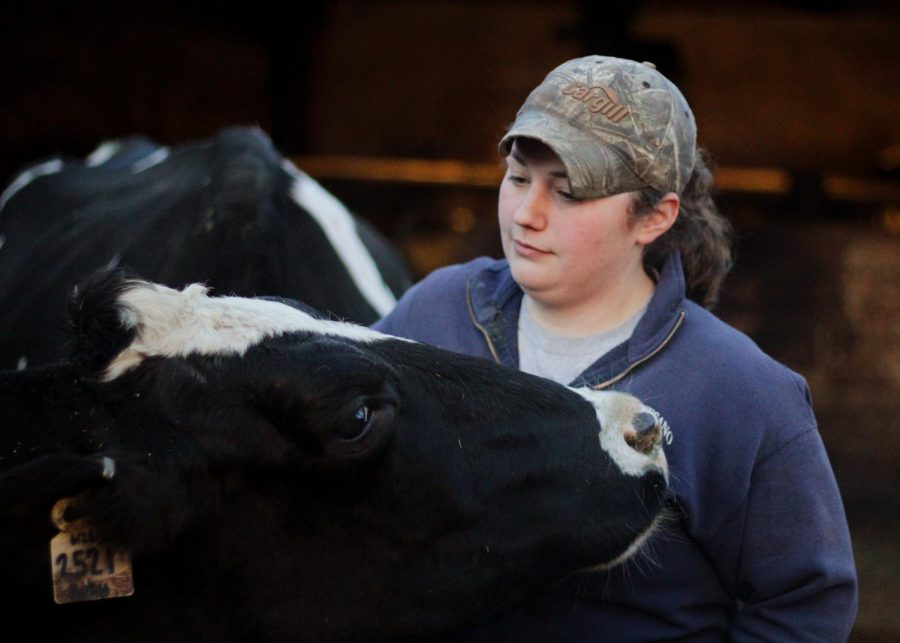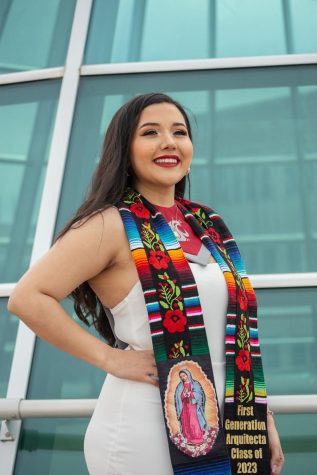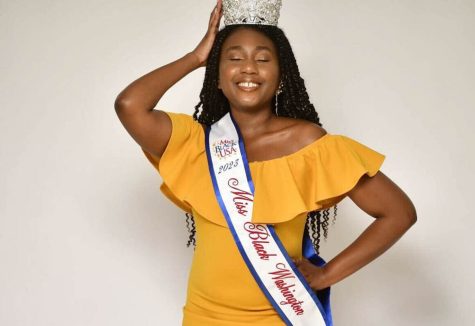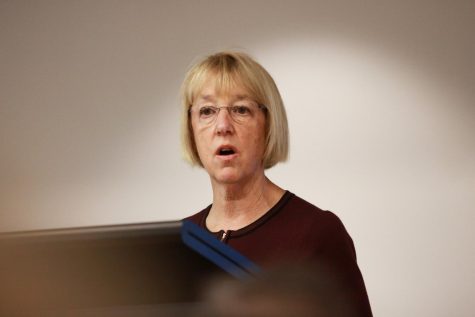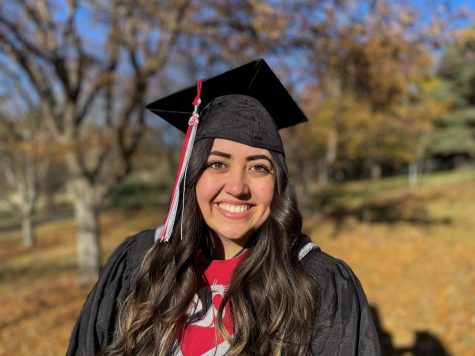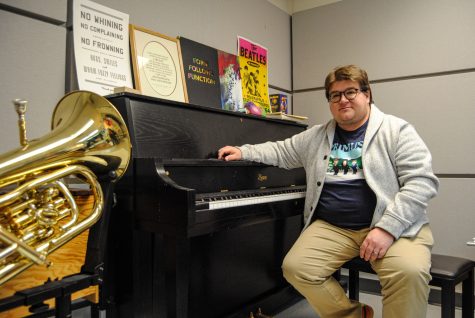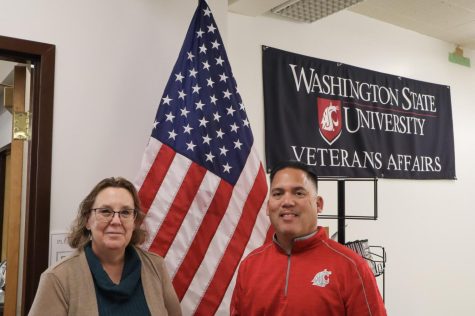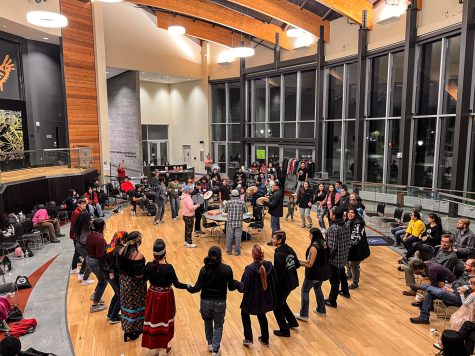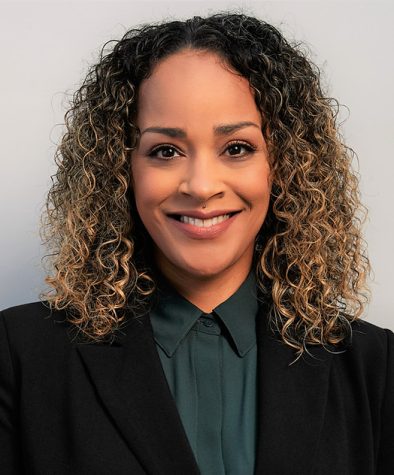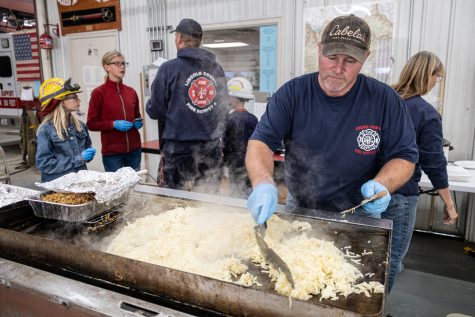Gaining hands-on experience at the Knott Dairy Center
WSU dairy cooperative first of two programs to own, manage cows
KIERA CLUBB | The Daily Evergreen
Senior Shelby Felder says she is a part of a family of farmers, but one of the last who specializes in dairy. Felder says cows are her favorite animals.
December 1, 2017
No matter how difficult it might be, Brianna Parmentier’s dream is to become a herdsman at a dairy farm.
A herdsman is essentially a manager of a dairy farm, she said. In that career, she would be responsible for checking whether cows are ready to breed, making sure they are fed and keeping employees on task.
Parmentier, a senior studying animal science management, is a Knott Dairy Center employee and a member of the Cooperative University Dairy Students group, or CUDS, an organization that manages and owns a herd of 35 cows at the center. Between both commitments, she is usually at work six days a week.
CUDS President Marcy Bartelheimer said members are responsible for all aspects of herd care.
The WSU Creamery uses all of the milk produced by the CUDS herd to make cheese and ice cream products, including the renowned Cougar Gold Cheese, according to the CUDS website.
Some responsibilities include milking, feeding, birthing, monitoring herd statistics and chore shifts, she said. In addition to daily tasks, each member holds a chair position that relates to different areas of the dairy industry.
Bartelheimer, a senior studying animal science, has been a member since the beginning of her college career.
Growing up on her grandpa’s dairy farm, Bartelheimer knew she wanted to pursue a career in the dairy industry. Joining CUDS was the best way to get experience in management and working on a farm, she said.
“It has been really helpful for me to see a broader perspective of what is done on a farm,” she said.
Working at the center and being a part of CUDS has given her the hands-on training she needs, as well as connections in the industry, she said.
“If you say you work at the Knott Dairy Center, this is a very well-known dairy farm,” she said. “A lot of the people working in the industry went to WSU and were probably in the CUDS program or worked at the KDC.”
The connections she builds in the industry working at the center and being a member of CUDS will help her after graduation, she said.
CUDS is a great experience for someone in the dairy industry, because it is a unique program, she said. Just two college programs in the U.S. own and manage their own cows. WSU’s CUDS program was the first.
Parmentier and other students who work on the farm have found that the experience gives them an edge in their classes.
This is the case for Morgan Hawley, a junior studying animal science. Hawley works part-time at the center.
Hawley attended Oregon State University for her first year of college, and attended a couple dairy club meetings with a friend. After this, she agreed to help the club prepare for the Oregon Future Farmers of America State Dairy Judging Contest.
“Seeing everyone get so excited about it made me athink, ‘Okay, maybe I can do this’,” she said. “When I signed up for classes [at WSU], I signed up for the dairy management class, and instantly loved it.”
Working at the KDC has allowed Hawley to gain hands-on experience in the dairy industry. A typical shift includes feeding the calves, raking the cow beds, helping with cleaning and filling salt and minerals in the cow pens.
Hawley is still unsure about her future, but thinks she might go into the animal health industry. Her experience at the center has given her skills and connections she can use in the future.
“It’s helpful getting to see all the things I learn in a textbook in real life,” she said. “This job has also helped me make a lot of connections in the industry.”
Parmentier stays busy between school and her time at the center, and sometimes it can be difficult to manage time between her commitments, she said.
Even though it can be stressful, she has realized that she pays more attention in her animal science classes because she can apply what she learns at the center, she said.
For Parmentier, working at the KDC is more than a part-time job. It is something she loves and looks forward to, she said.
“Even if this was unpaid,” she said, “I would definitely still be here.”
Correction: A paraphrase in this story was misattributed to Bartelheimer, when it was actually said by Parmentier.


